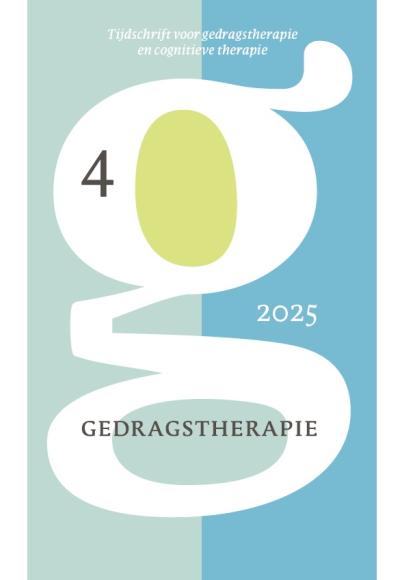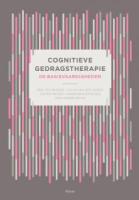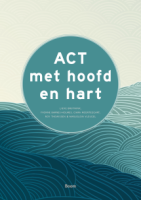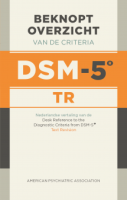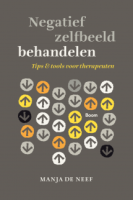Inhoud
Cognitieve controle over negatieve gedachten: Een stand van zaken
Samenvatting
Nieuwe theorieën stellen dat verminderde cognitieve controle kan bijdragen tot ruminatie bij depressie. Dit artikel bespreekt onderzoek naar dit idee met de recent ontwikkelde interne shift taak (IST). Dit onderzoek toont aan dat er een relatie bestaat tussen ruminatie en cognitieve controle en dat verminderde cognitieve controle bijdraagt tot meer ruminatie in confrontatie met stress. We presenteren een model dat verklaart op welke manier cognitieve controle ruminatie en depressieve symptomen beïnvloedt. Vanuit dit model worden een aantal suggesties gedaan naar klinische interventies die kunnen bijdragen tot het reduceren van ruminatie en depressieve klachten.
Literatuur
- Alloy, L.B., Abramson, L.Y., Hogan, M.E., Witehouse, W.G., Rose, D.T., Robinson, M.S. Kim, R.S., & Lapkin, J.B. (2000). The temple-Wisconsin cognitive vulnerability to depression project: lifetime history of Axis I psychopathology in individuals at high and low cognitive risk for depression. Journal of Abnormal Psychology, 109, 403-418.
- Baddeley, A.D. (1986). Working memory. Oxford: Clarendon Press.
- Baddeley, A.D., & Hitch, G.J.L (1974). Working Memory, In G.A. Bower (Ed.), The psychology of learning and motivation: advances in research and theory (Vol. 8, pp. 47-89), New York: Academic Press.
- Beck, A.T., Steer, R.A., & Brown, G.K. (1996). Manual for the Beck Depression Inventory (2nd ed.). The Psychological Association: San Antonio, TX.
- Chambers, R., Lo, B.C.Y., & Allen, N.B. (2008). The impact of intensive mindfulness training on attentional control, cognitive style, and affect. Cognitive Therapy and Research, 32, 303-322.
- Clark, D.A., Beck, A.T., & Alford, B.A. (1999). Scientific foundations of cognitive theory and therapy for depression. New York: Wiley.
- Clore, G.L., & Gasper, K. (2000). Feeling is believing: Some affective influences on belief. In N. Frijda, T. Manstead, & S. Bem (Eds.), Emotions and Beliefs: How Feelings Influence Thoughts (pp. 10 - 44). New York: Cambridge University Press.
- De Lissnyder, E., Koster, E.H.W., & De Raedt, R. (2011). Emotional interference in working memory is related to rumination. Cognitive Therapy and Research.
- De Lissnyder, E., Koster, E.H.W., & De Raedt, R. (submitted). Rumination is characterized by valence-specific impairments in internal shifting of attention.
- De Lissnyder, E., Koster, E.H.W, Everaert, J., Schacht, R., Van den Abeele,, D., & De Raedt, R. (submitted). Impaired cognitive control in clinical depression: No influence of emotion-specificity or task relevance of affective information.
- De Lissnyder, E., Koster, E.H.W., Goubert, L., Onraedt, T., Vanderhasselt, M., & De Raedt, R. (2011). Impaired cognitive control moderates the association between stress and rumination. Journal of Behavior Therapy and Experimental Psychiatry, 43, 519-525.
- Demeyer, I., De Lissnyder, E., Koster, E.H.W., & De Raedt, R. (submitted for publication). Rumination mediates the relationship between impaired cognitive control for emotional information and depressive symptoms: A prospective study in remitted depressed adults.
- De Raedt, R., & Koster, E.H.W. (2010). Understanding vulnerability for depression from a cognitive neuroscience perspective: a reappraisal of attentional factors and a new conceptual framework. Cognitive, Affective, and Behavioral Neuroscience, 10, 50-70.
- Fryers, T., Brugha, T., Morgan, Z., Smith, J., Hill, T., Carta, M.,…Kovess, V. (2004). Prevalence of psychiatric disorder in Europe: The potential and reality of meta-analysis. Social Psychiatry and Psychiatric Epidemiology, 39, 899-905.
- Hamilton, M. (1967). Development of a rating scale for primary depressive illness. British Journal of Social and Clinical Psychology, 6, 278-296.
- Hollon, S.D. & Dimidijan, S. (2009). Cognitive and behavioural treatment for depression. In I.H. Gotlib & C.L. Hammen (Eds.), Handbook of Depression (second edition) (pp. 586603). New York: The Guilford Press.
- Joormann, J., Yoon, K.L., & Zetsche, U. (2007). Cognitive inhibition in depression. Applied and Preventive Psychology, 12, 128-139.
- Kessler, R.C., & Wang, P.S. (2009). The epidemiology of depression. In I.H. Gotlib, C.L. Hammen (Eds.) (2nd ed.). Handbook of Depression (pp. 5-22). New York: Guilford.
- Koster, E.H.W., De Lissnyder, E., Derakshan, N., & De Raedt, R. (2011). Understanding depressive Rumination from a cognitive science perspective: The impaired disengagement hypothesis. Clinical Psychology Review, 31, 138-145.
- Merriam, E.P., Thase, M.E., Haas, G.L., Keshavan, M.S., & Sweeney, J.A. (1999). Prefrontal cortical dysfunction in depression determined by Wisconsin card sorting performance. American Journal of Psychiatry, 156, 780-782.
- Nolen-Hoeksema, S., & Morrow, J. (1991). A prospective study of depression and posttraumatic stress symptoms after a natural disaster: The 1989 Loma Prieta earthquake. Journal of Personality and Social Psychology, 61, 115-121.
- Nolen-Hoeksema, S., Wisco, B.E., & Lyubomirsky, S. (2008). Rethinking rumination. Perspectives on Psychological Science, 5, 400-424.
- Scandinavian Journal of Psychology, 45, 253-258.
- Pinninti, N.R., Madison, H., Musser, E. & Rissmiller, D. (2003). MINI International Neuro psychiatric Schedule: Clinical utility and patient acceptance. European Psychiatry, 18, 361-364.
- Raes, F., Hermans, D., & Eelen P. (2003). De Nederlandstalige versie van de Ruminative Response Scale (RRS-NL) en de Rumination on Sadness Scale (RRS-NL). Gedragstherapie, 36, 97-104.
- Rusting, C.L., & DeHart, T. (2000). Retrieving positive memories to regulate negative mood: Consequences for mood-congruent memory. Journal of Personality and Social Psychology, 78, 737-752.
- Siegle, G.J., Ghinassi, F., & Thase, M.E. (2007). Neurobehavioral therapies in the 21st century: Summary of an emerging field and an extended example of Cognitive Control Training for depression. Cognitive Therapy and Research, 31, 235-262.
- Thomsen, D.K., Jorgensen, M.M., Mehlsen, M.Y., & Zachariae, R. (2004). The influence of rumination and defensiveness on negative affect in response to experimental stress.
- Van der Does, A.J.W. (2002). De Nederlandse Versie van de Beck Depression Inventory Tweede Editie. [The Dutch version of the Beck Depression Inventory-Second Edition]. Lisse: Swets & Zeitlinger.
- Watkins, E., & Brown, R.G. (2002). Rumination and executive function in depression: An experimental study. Journal of Neurology, Neurosurgery & Psychiatry, 72, 400-402.
- Watkins, E., & Moulds, M. (2005). Positive beliefs about rumination in depression - a replication and extension. Personality and Individual Differences, 39, 73-82.
- Whitmer, A., & Gotlib, I.H. (2011). Brooding and Reflection Reconsidered: A Factor Analytic Examination of Rumination in Currently Depressed, Formerly Depressed, and Never Depressed Individuals. Cognitive Therapy and Research, 35, 99-107
 © 2009-2026 Uitgeverij Boom Amsterdam
© 2009-2026 Uitgeverij Boom Amsterdam
De artikelen uit de (online)tijdschriften van Uitgeverij Boom zijn auteursrechtelijk beschermd. U kunt er natuurlijk uit citeren (voorzien van een bronvermelding) maar voor reproductie in welke vorm dan ook moet toestemming aan de uitgever worden gevraagd:
Behoudens de in of krachtens de Auteurswet van 1912 gestelde uitzonderingen mag niets uit deze uitgave worden verveelvoudigd, opgeslagen in een geautomatiseerd gegevensbestand, of openbaar gemaakt, in enige vorm of op enige wijze, hetzij elektronisch, mechanisch door fotokopieën, opnamen of enig andere manier, zonder voorafgaande schriftelijke toestemming van de uitgever.
Voor zover het maken van kopieën uit deze uitgave is toegestaan op grond van artikelen 16h t/m 16m Auteurswet 1912 jo. Besluit van 27 november 2002, Stb 575, dient men de daarvoor wettelijk verschuldigde vergoeding te voldoen aan de Stichting Reprorecht te Hoofddorp (postbus 3060, 2130 KB, www.reprorecht.nl) of contact op te nemen met de uitgever voor het treffen van een rechtstreekse regeling in de zin van art. 16l, vijfde lid, Auteurswet 1912.
Voor het overnemen van gedeelte(n) uit deze uitgave in bloemlezingen, readers en andere compilatiewerken (artikel 16, Auteurswet 1912) kan men zich wenden tot de Stichting PRO (Stichting Publicatie- en Reproductierechten, postbus 3060, 2130 KB Hoofddorp, www.cedar.nl/pro).
No part of this book may be reproduced in any way whatsoever without the written permission of the publisher.
Inloggen VGCt en VVGT
Leden van de VGCt en de VVGT loggen in via de site van hun vereniging. Als u op die site bent ingelogd als lid, vindt u daar een button naar het Tijdschrift voor Gedragstherapie.
English
Behavioral Therapy: Journal for Behavioral Therapy and Cognitive Therapy ISSN 0167-7454
Information in English can be found here.



